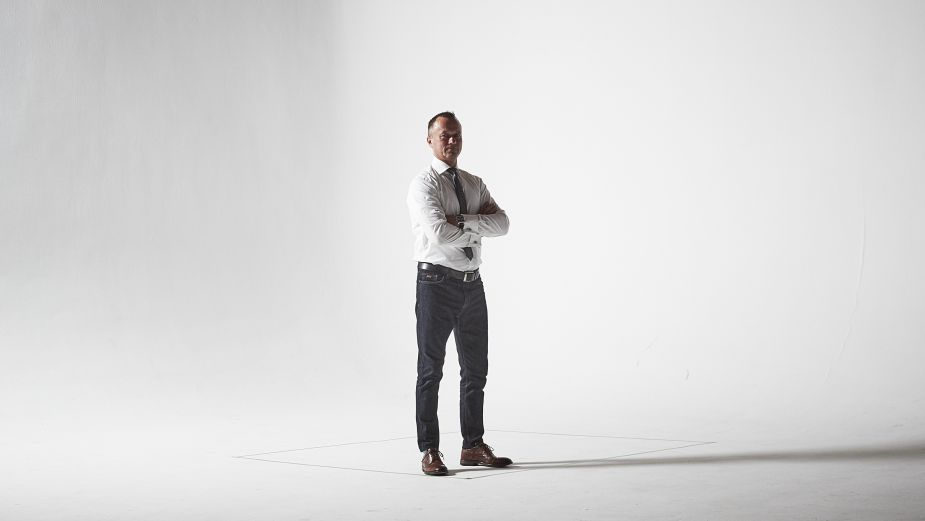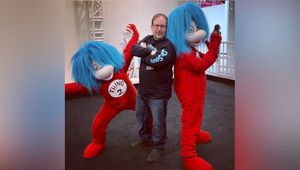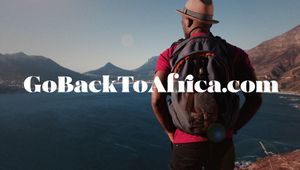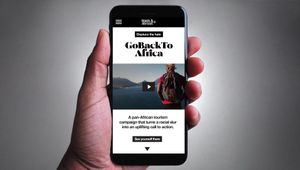
Meet The Technologists: Jacob Ciesielski

Since growing up in a small village outside of Warsaw, Poland, Jacob Ciesielski has been fascinated by numbers. He would memorise licence plates and house numbers, making sense of the numerical patterns and naturally recalling them at a later date. He loved to build, visualising the outcome before the construction began. Those constructions could last hours as he pieced together elaborate devices with mechanical tools and dismantled household appliances, setting himself the challenge of reconstructing them from memory.
Perhaps unsurprisingly, his obsession with numbers and visualisation snowballed into a career; a 20-year venture focused on bringing data and technology together as one to fuel new levels of connectivity.
These days, Jacob is the chief technology officer of FCB/SIX, an agency that has made a name for itself with a string of campaigns that use data in creative and entertaining ways. Working side-by-side with the agency's chief creative officer Ian MacKenzie, Jacob has provided the data and technology expertise behind award-winning creative data campaigns for PFLAG and Black & Abroad, the latter being a Cannes Lions Grand Prix winner and an Immortal Award winner.
Fresh off the back of launching a two-year-in-the-making platform for the #MeToo movement, LBB's Addison Capper picked Jacob's brains on his career, his work and his industry.
LBB> You've always been fascinated by numbers - can you tell me more about that? Where does that fascination stem from? Is it just the way your brain works or something more?
Jacob> I was always fascinated and intrigued by anything that had numbers associated with it. This is just how my brain works. I like calculating things in my head, whether simple or complex equations. Mental math was my thing daily. I specialised in math and physics in high school, and followed an advanced math curriculum. I always thought that memorising things will help keep my brain active and always challenging for more. This included memorising licence plates of cars that were driving by, telephone numbers, etc. Even today, I know all of my credit card numbers, passport numbers and phone numbers for most of my friends.
LBB> You grew up just outside of Warsaw - what was your childhood like? And how did it lead you to where you are now?
Jacob> My childhood was good, but my parents had to work hard to support me and my two younger brothers. I grew up in the ‘80s and was barely 10 years old when the Solidarity movement brought a lot of changes to Poland. It wasn’t until 1989 when things started to change, but that’s when my mom had an opportunity to go to Canada to visit our cousins and she decided to stay, uniting all of us three years later. The decision to leave my home country, friends and extended family wasn’t an easy one but I was excited for the change and more importantly thought about the future. Not knowing any English at that time, it was hard. I spent months studying at home, going to different ESL classes in order to learn the language. In the winter of 1995 I lost my dad in a car accident. This was probably the hardest thing I had to live through. My mom and my youngest brother were also in the car, but thankfully they survived the crash. Life became very different. I was the oldest in my family and felt responsible to support the household. I made it through thanks to some great friends and my girlfriend at the time (and now my wife). I met some great people that helped navigate my professional career, while providing great mentorship. I think decisions made in the early 2000s got me to where I am today.
LBB> Tell me about your first encounters with technology. Where does that interest come from? And did it manifest at an early age?
Jacob> My first real interest in technology was back in the late ‘90s. I actually built my first computer just to see if I can do it. It was then, when I started thinking about how a system can be designed from different parts and used for a specific purpose. I was more interested about how software worked and how users could interact with different systems simply with login info. That was then. Not a lot of options and user experience was pretty basic.
LBB> Most agencies have some kind of CTO now and I feel like that role differs from company to company. Considering FCB/SIX's approach as a data-forward agency, how do you define your role? What keeps you busy?
Jacob> My role as CTO can be defined as a hybrid between data, technology and consulting. It’s the innovative, creative and strategic thinking skills that are required to be a CTO of a company today, a role that many confuse with IT. Innovation is at the forefront of my daily tasks. With thousands of technology platforms out there and the amount of data available to marketers, my role is focused on helping our clients decide on the right technology investments and helping bridge the gap between their marketing needs and technology requirements. Most technology vendors sell their products based on features and functionality. To our clients, I’m often viewed as a technology adviser, someone that works closely with senior marketing and technology leaders, providing them with strategic POV about their current technology platforms, vendor assessments and tech innovations. I try to remove the complexity from each tech solution, focusing on using technology to create individualised user experiences. Internally, I lead the team of the best data and technology experts in the industry, and work closely with our creative, strategy and account teams to design and implement solutions that bring creative ideas to life.
LBB> You've been in this kind of role for about 20 years (I think) - how has it evolved over that time?
Jacob> I’ve been working with data and technology since the late ‘90s. A lot has changed since then, especially how mobile and connected technology is now part of everyone’s life; companies are reinventing themselves and are becoming technology companies that connect with their customers and prospects in real-time. The number of new apps and tech platforms, whether used for work, gaming or personal needs, are all focused on data collection and providing personalised experiences to consumers. Most, if not all of the technology platforms offer SaaS solutions, putting the control in marketers' hands, shifting the focus from massive, timely and costly IT implementation to spending more time on marketing and CRM strategy. But the continuous technology innovation and development started to impact privacy, and how data can be collected and used. With GDPR and CCPA, technology platforms must be compliant with local privacy laws, letting consumers decide what data can be collected and how it can be used.
LBB> You are a CTO but a huge part of FCB/SIX's work is data-based. How do you see that interplay between data and technology to forge creativity?
Jacob> Technology is not a magic wand. It’s an enabler that helps bring great ideas to life. As I mentioned earlier, my role as a CTO is to unpack the potential of technology and identify the right data, which is the necessary ingredient, that fuels creativity. When you connect different technology and data systems, you are creating a very powerful ecosystem that powers all consumer interactions, delivering unique but consistent experiences across the entire journey. We don’t build software or re-invent technology; we find creative ways to show how technology and data can coexist.
LBB> I asked this question to Ian MacKenzie and want to ask you too. FCB/SIX's main focus is the interplay between data and creativity. Data still feels like a bit of a dirty word in some corners of the ad industry. What do you say to them? Why is data so exciting and how does it aid creativity?
Jacob> A lot of ad agencies use data to tell the story. We (at SIX) believe that everything in our world is, and can be, driven by data. Data that isn’t analysed and processed is just information. It’s how we use it and derive insights from it to make smarter decisions, recommendations or take actions against it. Data is the difference between personalisation and individualisation, and when properly used, it turns brand loyalists into brand ambassadors.
LBB> How do you and Ian work together? Are you quite similar or different in your approaches?
Jacob> Ian is one of the best creative mindsets I have ever worked with and he understands the value and role of data and technology in any creative project. He and I work very closely together, sharing thoughts and ideas, discussing the art of possible. We both believe any idea can be executed if there is the right person and team in front of it. We also don’t believe in releasing half-baked products or ideas; we believe in perfecting the design and the craft of work until we exceed our own and our client’s expectations.
LBB> You’ve just launched a huge project with the Me Too movement that was two years in the making. Can you summarise those two years and the experience of working on such a drawn out project?
Jacob> One of the best things at SIX is that once an idea is born it’s not necessarily ready to be out to market that quickly. A simple analogy I use is that when Apple or Microsoft release software, they use consumers as beta testers. When we release a creative product, we don't have a chance to make a consumer-facing test to ensure that it's going to be perfect when it goes on to production, so it involves countless iterations and creative changes. From the creative perspective, we need to have a product that will deliver the experience that the brand is meant to deliver, and provides a platform for consumers to use it in a way that it is meant to be used by them. The race to the finish line is something that requires a dedicated team and collaboration between creative, strategy and technology, having developers across backend, frontend solutions architects, and being flexible enough to make any changes. We work countless hours before launch to make sure that when the product goes to market, it is what it is supposed to be. Our client and Ian's vision needs to be delivered through the creative product but, like I said, there are no beta tests with what we deliver. All the tests and iterations are done by our own team, but the actual product when it's ready is something that we can leave on the shelf, and it can run and it can become a platform for many, many years to come.
LBB> Speaking to Me Too specifically, a big element of the platform is actually providing a new way to document history, through blockchain. How was your experience of building that? And when did that idea come into play?
Jacob> I think the blockchain idea came up about a year ago to really provide the anonymous way to store the data. That’s what blockchain is used for, it's never been used for marketing, it's always been used for cryptocurrencies to promote financial terms. But we believed that we could take what's being used by banks and other FIs, and actually use it for marketing purposes, for a cause where the data would be completely secure based on how it's being structured. If you think about how we, as consumers, trust banks with the way they're storing our data, that is the same technology but used for a very different purpose. And it seems to be working well. People might not know what it is and the adoption rate is very different across different consumers in different markets, but I think the more you think about what blockchain does, and what it delivers, what it offers; it will be used, in my opinion, in a lot of marketing campaigns for many, many years to come simply because it allows you to do something very differently.
As you can imagine, privacy was a big component of the project because we are capturing information. The way that blockchain infrastructure technology works allows us to augment some of those requirements from a privacy perspective, especially from CCPA and standard GDPR, and making sure that we were fully compliant because information entropy blocks cannot be deleted. We had to convince consumers that this was the way to go but we had thousands of blocks written in the first week. It shows that people do believe in that and that they are actually very secure. The other thing is that, having a blockchain doesn't require you to register and sign in. In any other technology, in order for you to have a record in the system to tie back into your action you have to physically open an account - think about Facebook, Twitter or email. With what we've done, when you write a block you don't have to register yourself.
LBB> What kind of reaction have you seen from your peers since that project launched?
Jacob> I've heard positive things even from within the technology space. I've got comments from my colleagues saying, wow that's pretty impressive. But it's a different way that we build technology platforms today - we don't build anything from scratch, we build solutions or platforms from technology that already exists. And really all it takes is to understand that anything that you do should have a purpose in mind. Whenever people develop an email platform it's to deliver content to someone. We believe that any product that we build serves as a purpose or a platform for generic consumers. We like to look at platforms as utilities that help people get on with their lives, whether it's to be able to go back and write an action and share feedback, or being able to search for content that is relevant to their own community. Thinking back to the finished campaigns that we have brought out over the last three or four years, the collaboration between creative, strategy and technology is quite unique, and I've experienced that only an FCB. It's the mindset of people and a direction of our own leadership team. It really comes from the top down where we do believe in making work that’s not just going to be in a place for one time, it's about creating things that become platforms and things that will be talked about in the future.
LBB> Is there one piece of technology that's exciting you most right now? From a marketing standpoint, but also a personal one!
Jacob> I don’t think there is one, but if I was to pick a couple today, I would pick as follows:
- Smart home – it’s the entire system of different products that talks to each other. It’s the future, and it’s already here. And it has endless possibilities, both from a marketing and personal perspective. It will continue to evolve.
- Blockchain and AI, and how it will help address privacy and security concerns while still delivering that unique experience to each consumer.












